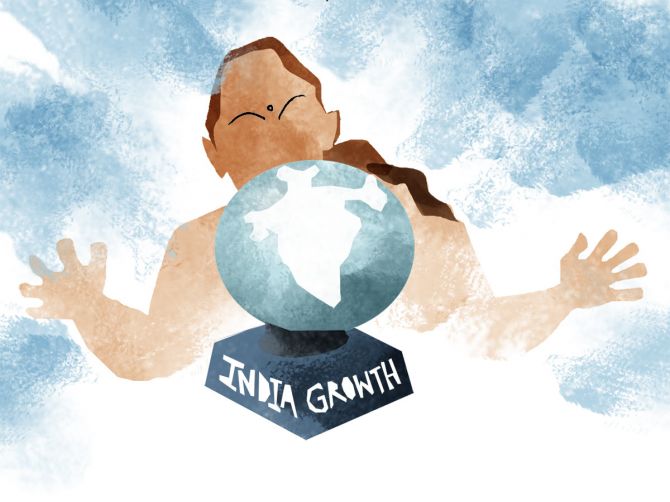The Modi government's flagship initiative 'Make in India' launched 10 years ago has helped the country boost exports, push investments and promote manufacturing.

Under the initiative, launched on September 25, 2014, a series of measures have been taken by the government to boost local manufacturing.
These initiatives include the rollout of production linked incentive (PLI) schemes for 14 sectors, easing foreign direct investment (FDI) norms, reducing compliance burden to improve business climate, all approvals through single window, and rolling out of the national logistics policy.
Prime Minister Narendra Modi in a post on X stated that Make in India has led to a rise in exports in different sectors, building capacities and strengthening economy.
"It's noteworthy how exports have risen in various sectors, capacities have been built, and thus, the economy has been strengthened.
"The Government of India is committed to encouraging 'Make in India' through all possible ways. India's strides in reforms will also continue," Modi said.
Commerce and Industry Minister Piyush Goyal said that these measures which also includes zero tolerance for corruption and the focused effort on emerging sectors like electronics have helped promote 'Make In India' and boost both domestic and foreign investments in the country.
"We have achieved great success and a brilliant future is ahead for manufacturing in the country as the 'Make in India' programme is celebrating its 10 years," he said.
The initiative was launched on September 25, 2014, to facilitate investment, foster innovation, build world-class infrastructure, and make India a hub for manufacturing, design, and innovation.
The government also gave investors stable and predictable policies, with a commitment not to do retrospective amendments. the minister said.
He added that measures at the tarde front have resulted in an increase in domestic capacities which have met the needs of India as well as helped boost the country's exports which reached an all-time high of $778 billion in 2023-24.
The minister expressed confidence that with the increasing momentum seen under the Make in India programme, "we believe that the share of manufacturing will also start increasing in the coming years".
Over the last 10 financial years, FDI inflow has increased by 119 per cent reaching $667 billion, compared to $304 billion in the previous 10 years (2005-14), with over 90 per cent of total FDI received through the automatic route.
Secretary in the Department for Promotion of Industry and Internal Trade (DPIIT) Amardeep Singh Bhatia said India is receiving foreign direct investments (FDI) of $70-80 billion every year and is expected to hit $100 billion per annum in the coming years.
The department is also streamlining approval processes for FDI applications.
The government has taken a series of measures to promote investments into the country such as easing the norms in sectors such as defense, railways, insurance, and telecom.
"We are targeting much higher investment flows.
"We have about $70 billion to $80 billion which is coming in every year. But we are expecting this to increase to at least $100 billion a year in the years to come," Bhatia told reporters in New Delhi.
According to DPIIT, defence contracts worth billions of dollars were awarded to Indian companies like Tata, L&T, and Bharat Forge, fostering a growing ecosystem of defense manufacturing.
Goyal also said that encouraged by the success of Jan Vishwas law, rolled out last year, the government is working on its second edition to further decriminalise minor offences.
He said that the ministry has received a number of inputs from stakeholders and departments to further decriminalise minor offences in the second edition of the Jan Vishwas bill, expected to be tabled in Parliament in Budget session next year.
Last year, the Jan Vishwas law was rolled out to promote ease of business by decriminalising minor offences through amendments in 183 provisions of 42 acts.
"We have received a very good response so far.
"A number of departments have come forward with proactive suggestions to decriminalise laws under their ministries and stakeholders have given good inputs on the areas where they are looking for de-criminalisation without compromising on safety and security and national interest," Goyal told PTI.
When asked whether the bill can be tabled in the winter session of Parliament, he said it will need more time for consultation, "so possible more in the Budget session".











 © 2025
© 2025